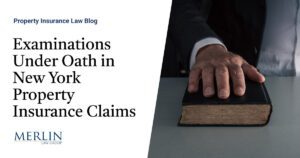Lower Policy Limits for Nonowners of Vehicle Do Not Violate Public Policy
The federal district court granted the insurer’s motion for summary judgment deciding that lower policy limits for nonowners of a vehicle did not violate public policy. Talana v. Liberty Surplus Ins. Co., 2023 U.S. Dist. LEXIS 50222 (D. Haw. March 24, 2023).
Judy Talana collided with a car while operating a moped and suffered serious injuries. Two years later, she filed a declaratory judgment action against Liberty Mutual, which had issued an excess policy covering the car driver at the time of the accident. Talana sought a declaration that the applicable liability coverage limit was $1,000,000. Liberty Mutual contended that the proper limit was $50,000, the limit set by the policy for nonowner drivers such as the driver involved in the accident with Talana.
Although the policy set the limit for nonowner drivers at $50,000, Talana argued that the court should rule as a matter of statutory interpretation or public policy that the higher coverage limit of $1,000,000 applicable to the car owner should also to the car driver.
Talana argued the policy unlawfully differentiated between a nonowner driver by applying limits of $50,000 while the car owner had limits of $1,000,000. Talana argued this difference violated state laws that emphasised the primary nature of a vehicle owner’s policy. The court rejected the argument. State laws concerning policies issued to car owners had no bearing here because the Liberty Mutual policy was not issued to a car owner. The policy was an excess policy issued to a company that did not own the insured vehicle.
Further Talana presented no evidence that Hawaii’s public policy disfavoured policies setting different liability limits for different parties. No authority prohibited auto policies from assigning different limits to different insureds.
The court denied Alana’s motion for summary judgment and granted summary judgment to Liberty Mutual. The clerk was directed to enter judgment for Liberty Mutual and to close the case.


